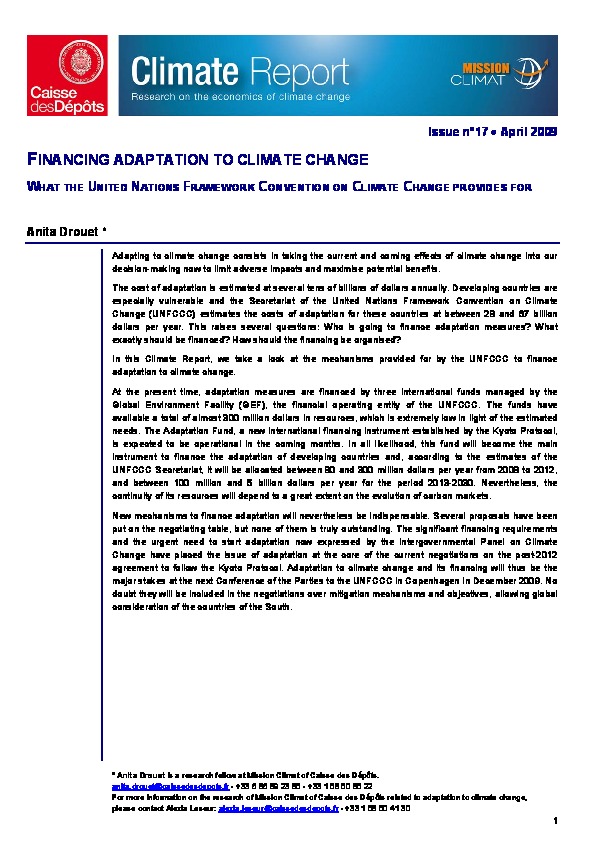Financing adaptation to climate change: What The United Nations Framework Convention On Climate Change Provides For
By Anita DROUET
Adapting to climate change consists in taking the current and coming effects of climate change into our decision-making now to limit adverse impacts and maximise potential benefits.
The cost of adaptation is estimated at several tens of billions of dollars annually. Developing countries are especially vulnerable and the Secretariat of the United Nations Framework Convention on Climate Change (UNFCCC) estimates the costs of adaptation for these countries at between 28 and 67 billion dollars per year. This raises several questions: Who is going to finance adaptation measures? What exactly should be financed? How should the financing be organised?
In this Climate Report, we take a look at the mechanisms provided for by the UNFCCC to finance adaptation to climate change.
